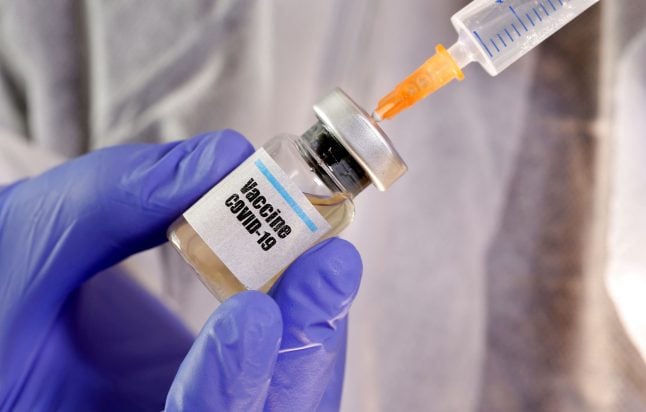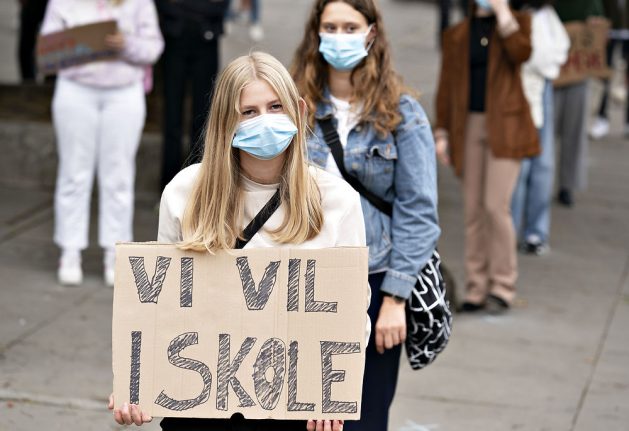
AARHUS
One fifth of people in Denmark sceptical of Covid vaccine
Nearly a fifth of people in Denmark are uncertain about whether they would take a coronavirus vaccine if recommended it by the country's health authorities, with researchers warning of a "massive communication task" lying ahead.
Published: 10 October 2020 17:57 CEST

Danes were the least sceptical of the eight countries surveyed. Photo: Dado Ruvic/Reuters/Ritzau Scanpix
According to the latest update from Aarhus University's ongoing How Democracies Cope with COVID19 (HOPE) project, only 51 percent of those surveyed in Denmark described themselves as “completely certain” they would be willing to receive a vaccine, with a further 31 percent saying that they were partly certain.
Michael Bang Pedersen, the Aarhus psychology professor who leads the project, said that, while worrying, respondents from Denmark were more positive to vaccines than those of any other nation.
“The Danish results look pretty good, the Swedish figures are less good, and some of the results from France are extremely worrisome in my view,” he told The Local.
“So I think there's a massive communication task in front of a lot of national health authorities, including the Danish one.”
Only 38 percent of respondents from France to the study said they were “completely certain” they would take a vaccine.
Here are the figures for the eight nations surveyed, from left to right: France, Hungary, USA, Germany, Sweden, Italy, UK, Denmark.

Bang Pedersen said that some uncertainty was unsurprising.
“At this point, some uncertainty is to be expected, because we don't know what the features of the vaccine will be, how effective it is, and what the side effects will be,” he said.
“I think that part of the communication task for the authorities will be to acknowledge the uncertainty and to say, 'even if you are uncertain it doesn't mean you are anti-vaccine, and we are going to show you that the vaccine is safe despite those uncertainties.”
He said that the another obstacle could come if young people feel that because they are at too low a risk of becoming seriously ill from coronavirus to make receiving a vaccine worthwhile.
“They might think, 'I don't think I'll get a vaccine, because I'm not at risk myself'”, he said.
The solution, he said, was to make sure people were “informed about the logic of herd immunity”, and also made to feel empathy with people in vulnerable groups.
Finally, he said governments should already be starting to counteract misinformation about vaccines, and educating their populations to make them less susceptible to counter “fake news” in the internet.
The responses in the report were collected between September 13th and October 3rd.
Url copied to clipboard!


 Please whitelist us to continue reading.
Please whitelist us to continue reading.
Member comments